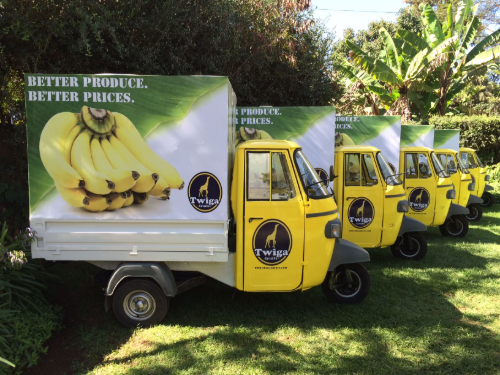Twiga Foods Pauses Nairobi Operations to Cut Costs, Reset Strategy

TLDR
- Twiga Foods, a leading e-commerce startup in Kenya, is suspending its Nairobi operations for two months as part of a broader restructuring
- The company plans to move from its current hub in Tatu City, Kiambu County, to a new facility closer to Nairobi
- This temporary halt is part of what the company calls the final stage of a long-term business overhaul
Twiga Foods, a leading e-commerce startup in Kenya, is suspending its Nairobi operations for two months as part of a broader restructuring. The company plans to move from its current hub in Tatu City, Kiambu County, to a new facility closer to Nairobi. Twiga is considering sites in Baba Dogo, Mombasa Road, and Syokimau.
This temporary halt is part of what the company calls the final stage of a long-term business overhaul. Over the past year, Twiga has undergone internal restructuring, including acquisitions, layoffs, and a pivot toward an asset-light model. The company now operates eight distribution centres outside Nairobi but is limiting further capital investments in the city.
Twiga says the shift is aimed at centralising operations, reducing transport costs, and using data to manage inventory more efficiently. Despite raising over $180 million since its founding, Twiga has struggled to scale in Kenya. Sources cited by TechCabal say its early model—owning logistics, inventory, and farming—proved too costly. Recent changes aim to match vendors with suppliers using tech, rather than owning the supply chain. Twiga's leadership says the company remains committed to serving small retailers through a leaner, tech-driven operation.
Daba is Africa's leading investment platform for private and public markets. Download here
Key Takeaways
Twiga Foods’ decision to pause operations and relocate reflects a broader shift among African startups away from capital-intensive strategies. Many companies across the continent are now moving toward asset-light models, driven by investor pressure for sustainable growth. The focus is increasingly on leveraging technology and partnerships rather than building infrastructure from scratch. In Kenya, the business-to-business food supply sector is complex and fragmented. Small retailers dominate the market, requiring flexible and cost-effective last-mile solutions. Twiga initially aimed to control the entire value chain, believing it would provide a competitive edge. But managing farms, warehouses, and logistics proved expensive and difficult to scale. Now, the company is centralising operations and outsourcing logistics where possible. This move is intended to reduce losses and meet investor expectations following a $35 million raise in 2023. Twiga’s case highlights the challenges of scaling in African markets with thin margins and operational hurdles. Similar companies may face pressure to make similar shifts in strategy.

Next Frontier
Stay up to date on major news and events in African markets. Delivered weekly.
Pulse54
UDeep-dives into what’s old and new in Africa’s investment landscape. Delivered twice monthly.
Events
Sign up to stay informed about our regular webinars, product launches, and exhibitions.




